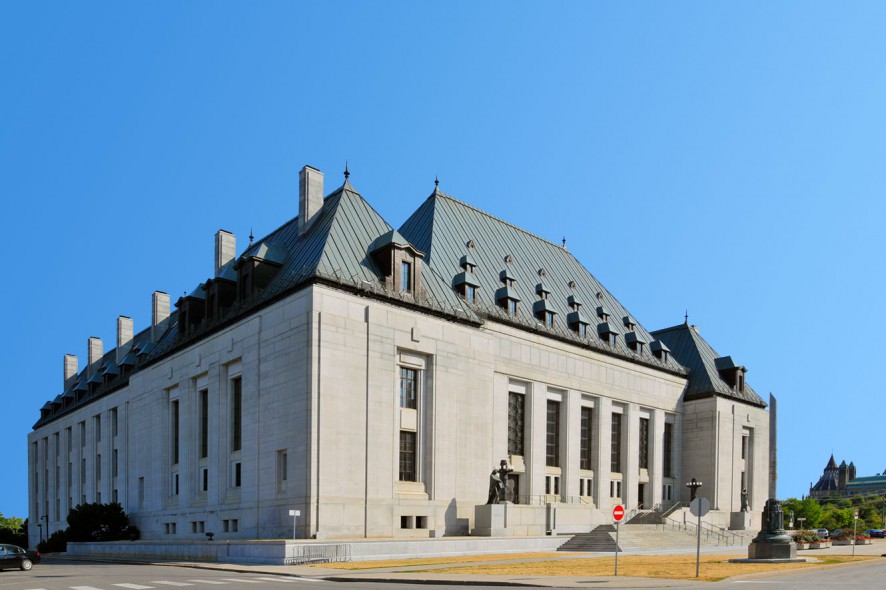Supreme Court of Canada: A 9-judge Bench of Wagner, CJ and Abella, Moldaver, Karakatsanis, Gascon, Côté, Brown, Rowe and Martin, JJ. heard an appeal filed by a religious group against the judgment of Court of Appeal for Quebec whereby institution of class action lawsuit against the group, for sexual abuse of children, was allowed.
Facts:
Respondent herein was sexually abused by two members (now dead) of a religious community known as the Congregation of Holy Cross when he was an altar boy at St. Joseph’s Oratory of Mount Royal. In 2013, he applied for authorization to institute a class action against Congregation and Oratory on the ground that they were directly responsible for not stopping such abuses and were also responsible for the acts of teacher and the priest because they assigned them to work with children. The Quebec Superior Court refused the respondent’s application holding that none of the conditions for institution of a class action suit were met. The Court of Appeal reversed that judgment and authorized the institution of the class action against the appellant. The appellants herein vehemently objected to the same. The dissenting Court of Appeal judge agreed with authorizing the class action against the Congregation, but not against the Oratory.
Submissions of parties:
The Solicitors for appellant one, the Congregation, in this case, argued that it constituted a corporation only in 2008 and that it cannot be held liable for acts that were, for the most part, alleged to have been committed before it was incorporated. The Solicitors for Oratory submitted that it had no connection with the religious community known as the Congregation of Holy Cross, and that it was a distinct entity whose sole mission was to operate and maintain that place of worship. In addition, both the appellants were of the view that, in any event, respondent’s personal action was irreparably forfeited as a result of Article 2926.1 para 2 of the Civil Code of Québec (hereinafter “CCQ”).
Decision of the Court:
The Court, by a majority of 5:4, held that the three-year time limit for suing, mentioned in Article 2926.1 para. 2 CCQ, in case the abuser or victim died; would not be applicable to a lawsuit filed against third parties like the Congrégation and the Oratoire. Thus, the deaths of the men who allegedly assaulted J.J. did not mean that his remedy against the Congregation and the Oratory was forfeited.
Though the case was instituted after several years of the commission of assault, the Court allowed the class action under Article 571 of Civil Code of Procedure of Canada (hereinafter “CCP”) which provides for authorization for institution of class action if “the claims of the members of the class raise identical, similar or related issues of law or fact”. This condition of “commonality applies not only in Quebec law, but also in that of all the common law provinces of Canada”. In this regard, the Court observed that all the class members were assaulted by members of the Congregation, regardless of the places where the assaults occurred. This provided that it was significant enough to affect the outcome of the class action.
Furthermore, it remarked that the Court of Appeal’s decision to authorize the institution of a class action against both the Congregation and the Oratory was justified. Reliance was laid upon Infineon Technologies and Infineon Technologies North America Corp. v. Option consommateurs and Claudette Cloutier, 2013 SCC OnLine Can SC 73 to rule that at the authorization stage, the court plays a “screening” role. The role was to ensure that the applicant met the conditions of Article 575 CCP. In this case, the conditions had been met, and thus the class action was authorized.
The Court also observed that it was useful to review some of the errors made by the Superior Court judge and this justified the Court of Appeal’s intervention.
The Court opined that the main issue here concerned liability based on a direct fault for “systemic” negligence in relation to assaults on children by its members. It upheld the decision of the Court of Appeal “the questions inherent in the issue of direct liability of the [Congregation] are on their own capable of clearly advancing the case toward a resolution of the litigation”. The Court also noted that there was a “connection” between Oratory and the Congregation. In other words, the allegations relating to Oratory were actually allegations relating to faults of members of the Congregation, and more specifically, allegations relating to faults of members of the Congregation acting as directors of the Oratory, who failed to put a stop to the sexual abuse and, worse, covered it up. Thus, the allegations relating to direct liability of the Oratory actually concerned wrongful conduct “on its directors’ part”. It was opined that the Oratory’s directors were themselves all members of the Congregation. In this sense “all the allegations and evidence that can apply to the Congregation can also apply to the Oratory.” Hence, authorization of the institution of a class action could go against both the Congregation as well as the Oratory. Therefore, the appeals were dismissed with costs to J.J.
This aforesaid judgment does mean that J.J. won the class-action lawsuit. It only means that this Court would now hear all the arguments and make a decision.[L’Oratoire Saint-Joseph du Mont-Royal v. J.J., 2019 SCC OnLine Can SC 13, decided on 07-06-2019]







